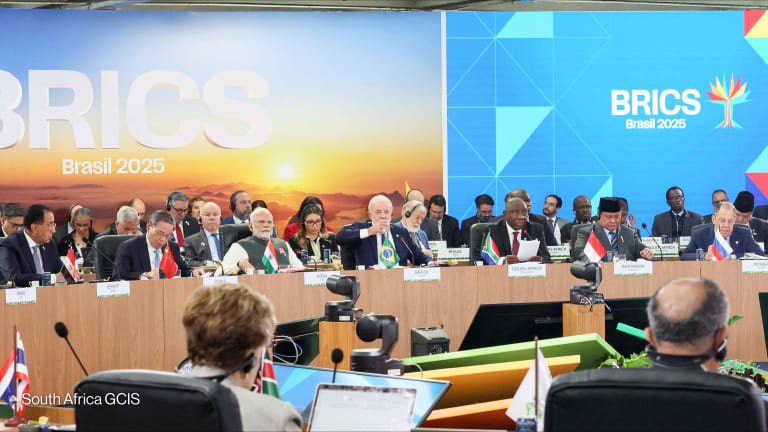
Next week, participants from every sector and region of the world will come together in Mexico to reflect on the world’s progress in development effectiveness, and discuss tangible ways to link this with the emerging post-2015 agenda.
As the world’s most populous and diverse region, it’s important that perspectives from Asia-Pacific are well represented, so the Asia-Pacific Development Effectiveness Facility will soon launch a report to bridge countries’ efforts on this.
The Asia-Pacific Effective Development Cooperation Report will cover vital issues including progress on previous commitments, resources for development, South-South cooperation, knowledge sharing and business’ growing role in development.
Early results from a global survey on progress since the 2011 Busan Partnership Agreement for Effective Development Co-operation show the 15 Asia-Pacific countries taking part have made greatest progress on improving aid predictability and mutual accountability. However, this varies across countries and untying aid has also shown mixed results. Aid on budgets and gender equality also need further progress.
Meanwhile, traditional aid accounts for a declining share of development finance. Official development assistance to Asia-Pacific fell from 16 percent of international flows in 1990, to 4 percent in 2011. Foreign direct investment and remittances grew roughly ten-fold over this period, and lending has also grown rapidly. However, many countries in the region still see aid as very important. For example, the Papua New Guinea government is actively encouraging providers to invest more cooperation in economic sectors. Rather than devaluing traditional forms of development cooperation, such as aid, these trends challenge us to articulate its added value in an increasingly complex and diverse landscape.
Mobilizing domestic resources is critical to the success of the post-2015 development agenda, and there is still some way to go. Government resources equate to less than $1,000 per person, when relative living costs are taken into account for 15 countries in Asia-Pacific, home to some 2.1 billion people. Natural resources can hugely boost development finance, but revenue streams are unpredictable and good management requires strong institutions. Huge volumes of illicit finance also flow out of the region each year, from larger economies such as India and Indonesia, as well as others including Thailand, Vietnam, Bangladesh and Papua New Guinea. Tax avoidance drains domestic resources. Though the international community talks about supporting developing countries to raise domestic revenues and mobilize resources, less than 1 percent of aid went to this in 2011.
Middle-income countries in Asia-Pacific are home to over 660 million people living on less than $1.25 a day, that’s some 57 percent of the global total. However, classification is determined entirely by countries’ average income — ignoring every other aspect of development, whether economic, social or environmental. The classification also masks huge sub-national disparities. If India’s states were independent countries, 11 would be in the top 20 countries in the world with the highest numbers of people living in poverty. Yet, average incomes in India as a whole have passed the $1,035 middle-income threshold — a meager $3 a day on average.
These classifications urgently need revision and providers of development cooperation must look beyond reductionist measures to the challenges faced by complex and diverse middle income countries. Many Asia-Pacific countries see themselves in transition. Some are emerging donors, but many still have strong demand for aid, highlighting the various valuable roles it can continue to play.
South-South and triangular cooperation in the region is also growing as countries such as China, India, Indonesia and Thailand continue to provide development cooperation. Others, like Papua New Guinea, have the longer-term goal of becoming a donor. Different initiatives are underway in these countries to strengthen policies and institutions with oversight of development cooperation.
Many countries in the region are actively sharing and receiving knowledge. Indonesia, for example, has shared its experience of rebuilding after the 2004 tsunami with other countries, such as Haiti, in the aftermath of a natural disaster. Indonesia has also learned from others’ experience, for example basing its Family Hope Program cash transfer program on Brazil’s Bolsa Familia.
Finally, the scale and growth of the private sector highlights the potential benefits of mobilizing private resources for greater development effectiveness. Business is increasingly recognized as a fundamental partner in holistic development, with a lot of experimenting on different ways of bringing it together with other partners. It’s crucial to maintain transparency and development effectiveness principles in such work.
Going into greater detail of realities on the ground in these countries, the Asia-Pacific Effective Development Cooperation Report will capture their diverse experiences, challenges and positions for valuable discussion on effective development cooperation in Mexico.
Join the Devex community and access more in-depth analysis, breaking news and business advice — and a host of other services — on international development, humanitarian aid and global health.
See more:
How to unlock Asia's social, economic potential? Better jobs for women








